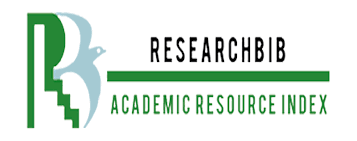Balance socioemocional y la alimentación emocional: una perspectiva desde una revisión sistemática de la literatura
DOI:
https://doi.org/10.35622/j.rep.2023.04.004Palabras clave:
articulación educativa, desarrollo emocional, equilibrio socioemocional, hábitos alimenticios, programas socialesResumen
El comer emocional, definido como el consumo de alimentos en respuesta a emociones negativas como ansiedad o tristeza, está impulsado por el sistema de recompensa del cerebro y tiene graves consecuencias físicas y psicológicas, incluyendo obesidad, culpa, baja autoestima y trastornos alimentarios. Este estudio explora la relación entre los trastornos emocionales como ansiedad, depresión y estrés, y el comer emocional en adultos, basándose en evidencia de la literatura científica. Se realizó una revisión sistemática bajo la metodología PRISMA, utilizando bases de datos académicas como PubMed, Scopus, Web of Science y Google Scholar. Los términos de búsqueda incluyeron combinaciones como "equilibrio socioemocional" Y "comer emocional" y "comer emocional" Y "bienestar emocional", abarcando estudios publicados entre 2018 y 2023. De 4,220 resultados iniciales, se analizaron 24 estudios relevantes. Las variables clave incluyen el equilibrio socioemocional, que influye en la regulación emocional, y el comer emocional, caracterizado por respuestas a emociones negativas. Los hallazgos revelan que el comer emocional impacta negativamente la salud física y mental, provocando culpa y fomentando patrones alimenticios poco saludables. Factores como el género, el estatus socioeconómico y el equilibrio emocional son determinantes clave. El estudio concluye que el comer emocional se origina en emociones negativas, generando problemas de salud. Intervenciones como la terapia cognitivo-conductual y el mindfulness pueden mitigar estos comportamientos, mejorando la regulación emocional y el bienestar general.
Estadísticas del Artículo
Referencias
Alharbi, R.M., & Alharbi, H.F. (2023). Patterns among female students at qassim university. Nutrients, 15(16), 3553. https://doi.org/https://doi.org/10.3390/ nu15163553 DOI: https://doi.org/10.3390/nu15163553
Ali, H., Ajmal, A., Rafiq, R., Ihsan, H., Alghzawi, H., & Hameed, M. (2024). From craving to calm: the role of mindful eating in modulating emotional eating and affect. Journal of Health and Rehabilitation Research, 4(3), 1-8. https://doi.org/10.61919/jhrr.v4i3.1683
Álvarez Valbuena, V., Maldonado-Ferrete, R., Catalán-Camacho, M., & Jáuregui-Lobera, I. (2021). Who influences who: the cognitive flexibility – emotions – eating disorders trio. Journal of Negative and No Positive Results, 6(1), 47-67. https://doi.org/10.19230/jonnpr.3687
Amoako, M., Amoah-Agyei, F., Du, C., Fenton, JI, & Tucker, R.M. (2023). Emotional eating among ghanaian university students: associations with physical and mental health measures. Nutrients, 15(6), 1–9. https://doi.org/10.3390/nu15061526 DOI: https://doi.org/10.3390/nu15061526
Anger, V., Panzitta, M., Kalfaian, L., Pees, J., Genovesi, S., Gamberale, M., & Mayer, M. (2021). Eating behavior phenotype and emotions as predictors of weight gain during COVID-19 lockdown. Nutrition Update, 22(1), 9–15. https://doi.org/10.48061/san.2021.22.1.9 DOI: https://doi.org/10.48061/SAN.2021.22.1.9
Arend, A.K., Blechert, J., Yanagida, T., Voderholzer, U., & Reichenberger, J. (2024a). Emotional food craving across the eating disorder spectrum: an ecological momentary assessment study. Eating and Weight Disorders, 29(1). https://doi.org/10.1007/s40519-024-01690-4 DOI: https://doi.org/10.1007/s40519-024-01690-4
Arend, Blechert, J., Yanagida, T., Voderholzer, U., & Reichenberger, J. (2024b). Emotional food craving across the eating disorder spectrum: an ecological momentary assessment study. Eating and Weight Disorders-Studies on Anorexia, Bulimia and Obesity, 29(1), 58. https://doi.org/10.1007/s40519-024-01690-4 DOI: https://doi.org/10.1007/s40519-024-01690-4
Arexis, M., Feron, G., Brindisi, MC, Billot, P. É., & Chambaron, S. (2023). A scoping review of emotion regulation and inhibition in emotional eating and binge-eating disorder: what about a continuum? Journal of Eating Disorders, 11(1), 1–30. https://doi.org/10.1186/s40337-023-00916-7 DOI: https://doi.org/10.1186/s40337-023-00916-7
Basheer, S., Kulkarni, P., Pragadesh, R., & Vanmathi, A. (2024). Psychosocial correlates of emotional eating among healthcare professionals in a tertiary care center in mysuru. APIK Journal of Internal Medicine, 1-7. https://doi.org/10.4103/ajim.ajim_4_24 DOI: https://doi.org/10.4103/ajim.ajim_4_24
Bell, B. M., Spruijt-Metz, D., Naya, C. H., Lane, C. J., Wen, C. K. F., Davis, J. N., & Weigensberg, M. J. (2021). The mediating role of emotional eating in the relationship between perceived stress and dietary intake quality in Hispanic/Latino adolescents. Eating behaviors, 42, 101537. https://doi.org/10.1016/j.eatbeh.2021.101537.The DOI: https://doi.org/10.1016/j.eatbeh.2021.101537
Bernabéu-Brotón, E., & Marchena-Giráldez, C. (2022). Emotional eating and perfectionism as predictors of symptoms of binge eating disorder: the role of perfectionism as a mediator between emotional eating and body mass index. Nutrients, 14(16), 3361. https://doi.org/10.3390/nu14163361 DOI: https://doi.org/10.3390/nu14163361
Betancourt-Núñez, A., Torres-Castillo, N., Martínez-López, E., De Loera-Rodríguez, C. O., Durán-Barajas, E., Márquez-Sandoval, F., ... & Vizmanos, B. (2022). Emotional eating and dietary patterns: reflecting food choices in people with and without abdominal obesity. Nutrients, 14(7), 1371. https://doi.org/https://doi.org/10.3390/ nu14071371 DOI: https://doi.org/10.3390/nu14071371
Bobadilla-Soto, P., Bugueño-Sierra, S., Guerrero-Jiménez, V., Muñoz-Durán, MT, Zúñiga-Coleman, J., & Nazar, G. (2022). Affective state, emotional regulation and eating styles among adults in Chile. Chilean Journal of Nutrition, 49(2), 193–200. https://doi.org/10.4067/S0717-75182022000200193 DOI: https://doi.org/10.4067/S0717-75182022000200193
Bourdier, L., Orri, M., Carre, A., Gearhardt, AN, Romo, L., Dantzer, C., & Berthoz, S. (2018). Are emotionally driven and addictive-like eating behaviors the missing links between psychological distress and greater body weight? Appetite, 120, 536–546. https://doi.org/10.1016/j.appet.2017.10.013 DOI: https://doi.org/10.1016/j.appet.2017.10.013
Bozkurt, O., Çamli, A., & Kocaadam-Bozkurt, B. (2024). Factors affecting food addiction: emotional eating, palatable eating motivations, and BMI. Food Science & Nutrition, 12(9), 6841-6848. https://doi.org/10.1002/fsn3.4333 DOI: https://doi.org/10.1002/fsn3.4333
Brytek-Matera, A., Czepczor-Bernat, K., & Modrzejewska, A. (2021). The relationship between eating patterns, body image and emotional dysregulation: similarities between an excessive and normal body weight sample. Psychiatric Services, 55(5), 1065–1078. https://doi.org/10.12740/PP/118816 DOI: https://doi.org/10.12740/PP/118816
Buja, A., Manfredi, M., Zampieri, C., Minnicelli, A., Bolda, R., Brocadello, F., Gatti, M., Baldovin, T., & Baldo, V. (2022). Is emotional eating associated with behavioral traits and Mediterranean diet in children? A cross-sectional study. BMC Public Health, 1–9. https://doi.org/10.1186/s12889-022-14192-8 DOI: https://doi.org/10.1186/s12889-022-14192-8
Carpio-Arias, T., Solis, A., Sandoval, V., Vinueza, A., Betancourt, A., Betancourt, S., & Vinueza, M. (2020). Relationship between perceived stress and emotional eating. A cross sectional study. Critical Nutrition, 49, 314–318. https://doi.org/https://doi.org/10.1016/j.clnesp.2022.03.030 DOI: https://doi.org/10.1016/j.clnesp.2022.03.030
Chawner, L.R., & Filippetti, M.L. (2024). A developmental model of emotional eating. Developmental Review, 72, 101133. https://doi.org/10.1016/j.dr.2024.101133 DOI: https://doi.org/10.1016/j.dr.2024.101133
Chiesa, N., & Fasulo, S. (2020). Neuropsychological assessment of higher brain functions in obese individuals. Anuario de Investigaciones de la Facultad de Psicología, 5(9), 108-125.
Chwyl, C., Berry, M. P., Manasse, S. M., & Forman, E. M. (2021). Rethinking emotional eating: retrospective and momentary indices of emotional eating represent distinct constructs. Appetite, 167, 105604. https://doi.org/10.1016/j.appet.2021.105604 DOI: https://doi.org/10.1016/j.appet.2021.105604
Cuesta-Zamora, C., Parra, M., Toledano-González, A., Ricarte, J., & Plateau, CR (2022). Exploring the Link Between Self-compassion and Compulsive Exercise Amongst Women. Mindfulness, 13(7), 1679–1691. https://doi.org/10.1007/s12671-022-01906-7 DOI: https://doi.org/10.1007/s12671-022-01906-7
De Gracia, M., Trujano, P., Nava, C., & Jiménez, N. (2024). Emotional eating patterns in a sample of Mexican adolescents. International Journal Of Community Medicine And Public Health, 11(2), 717–724. https://doi.org/10.18203/2394-6040.ijcmph20240259 DOI: https://doi.org/10.18203/2394-6040.ijcmph20240259
Debeuf, T., Verbeken, S., Van Beveren, M.L., Michels, N., & Braet, C. (2018). Stress and eating behavior: a daily diary study in youngsters. Frontiers in Psychology, 9, 1–13. https://doi.org/10.3389/fpsyg.2018.02657 DOI: https://doi.org/10.3389/fpsyg.2018.02657
Deniz, V., & Özgen, L. (2021). Emotional eating behaviors in adolescents. Journal of Food and Nutrition Research, 9(8), 406–414. https://doi.org/10.12691/jfnr-9-8-2 DOI: https://doi.org/10.12691/jfnr-9-8-2
Díaz-Tendero, D., Cruzat-Mandich, C., Jiménez, T., Martínez, P., Saravia, S., & Ulloa, V. (2019). Mindfulness in the control of binge eating, the perspective of a Chilean adult group. Mexican Journal of Eating Disorders, 10(1), 75–84. https://doi.org/10.22201/FESI.20071523E.2019.1.483 DOI: https://doi.org/10.22201/fesi.20071523e.2019.1.483
Estrada Nava, E. Y., Veytia López, M., Pérez-Gallardo, L., Guadarrama Guadarrama, R., & Gaona Valle, L. S. (2020). Relationship of body fat with emotional eating and diet quality in university students in Mexico. Latin American Archives of Nutrition, 70(3), 164–173. https://doi.org/10.37527/2020.70.3.002 DOI: https://doi.org/10.37527/2020.70.3.002
Fatima, E., Muneer, A., & Naeem, F. (2024). Exploring the interplay between emotional eating, eating behavior traits, and disordered eating behavior in adults: a cross-sectional study. Nature-Nurture Journal of Psychology, 4(1), 47–55. https://doi.org/10.53107/nnjp.v4i1.62
Frayn, M., Livshits, S., & Knäuper, B. (2018). Emotional eating and weight regulation: a qualitative study of compensatory behaviors and concerns. Journal of Eating Disorders, 6(1), 1–10. https://doi.org/10.1186/s40337-018-0210-6 DOI: https://doi.org/10.1186/s40337-018-0210-6
Guerrero-Hreins, E., Stammers, L., Wong, L., Brown, R. M., & Sumithran, P. (2022). A comparison of emotional triggers for eating in men and women with obesity. Nutrients, 14(19), 4144. https://doi.org/10.3390/nu14194144 DOI: https://doi.org/10.3390/nu14194144
Javadi Arjmand, E., Bemanian, M., Vold, J. H., Skogen, J. C., Sandal, G. M., Arnesen, E. K., Mæland, S., & Fadnes, L. T. (2023). Emotional eating and changes in high-sugar food and drink consumption linked to psychological distress and worries: a cohort study from norway. Nutrients, 15(3), 778. https://doi.org/10.3390/nu15030778 DOI: https://doi.org/10.3390/nu15030778
Kerin, JL, Webb, HJ, & Zimmer-Gembeck, MJ (2019). Intuitive, mindful, emotional, external and regulatory eating behaviors and beliefs: An investigation of the core components. Appetite, 132, 139–146. https://doi.org/10.1016/j.appet.2018.10.011 DOI: https://doi.org/10.1016/j.appet.2018.10.011
Lattimore, P. (2020). Mindfulness-based emotional eating awareness training: taking the emotional out of eating. Eating and Weight Disorders, 25(3), 649–657. https://doi.org/10.1007/s40519-019-00667-y DOI: https://doi.org/10.1007/s40519-019-00667-y
Lemos, N. de A. M., Penaforte, F. R de O., Rinaldi, A. E. M., Garcia, R. W. D., & Japur, C. C. (2018). Orthorexic eating behavior and dietary restraint in female undergraduate students. Revista chilena de nutrición, 45(3), 252-257. https://doi.org/10.4067/s0717-75182018000400252 DOI: https://doi.org/10.4067/s0717-75182018000400252
Monserrat Vázquez, V., Bosques-Brugada, L.E., Guzmán-Saldaña, R.M., Romero-Palencia, A., Reyes-Jarquín, K., & Franco-Paredes, K. (2019). Review of the construct and theoretical foundations of emotional eating. Education and Health Scientific Bulletin Institute of Health Sciences Autonomous University of the State of Hidalgo, 8(15), 255–263. https://doi.org/10.29057/icsa.v8i15.4802 DOI: https://doi.org/10.29057/icsa.v8i15.4802
Mortaş, H., Varli, S. N., & Bilici, S. (2023). Determinants of disordered eating behaviors: Body mass index, emotional eating, dietary restriction, and motives for eating palatable foods. Revista de Nutrição, 36, e220086. https://doi.org/10.1590/1678-9865202336E220086 DOI: https://doi.org/10.1590/1678-9865202336e220086
Nuraini, M., Wati, E. K., Sulistyaning, A. R. (2024). The correlation between physical activity, emotional eating, eating pattern, and genetic traits with obesity among female students. Journal of Nutrition College, 13, 338–346. https://doi.org/10.14710/jnc.v13i4.41560 DOI: https://doi.org/10.14710/jnc.v13i4.41560
Oliveira da Fonseca, N. K., Abreu Costa, M., Pereira Gosmann, N., Dalle Molle, R., Guimarães Gonçalves, F., Cardozo Silva, A., .. & Gus Manfro, G.(2023). Emotional eating in women with generalized anxiety disorder. Trends in Psychiatry and Psychotherapy, 45, e20210399. https://doi.org/10.47626/2237-6089-2021-0399 DOI: https://doi.org/10.47626/2237-6089-2021-0399
Page, M. J., McKenzie, J. E., Bossuyt, P. M., Boutron, I., Hoffmann, T. C., Mulrow, C. D., .. & Moher, D. (2021). The PRISMA 2020 statement: an updated guideline for reporting systematic reviews. PLoS Med 18(3). : e1003583. https://doi.org/10.1371/journal.pmed.1003583. DOI: https://doi.org/10.1371/journal.pmed.1003583
Palomino-Pérez, A. M. (2020). The role of emotion in eating behavior. Chilean Journal of Nutrition, 47(2), 286–291. https://doi.org/10.4067/S0717-75182020000200286 DOI: https://doi.org/10.4067/S0717-75182020000200286
Reichenberger, J., Kuppens, P., Liedlgruber, M., Wilhelm, F.H., Tiefengrabner, M., Ginzinger, S., & Blechert, J. (2018). No haste, more taste: An EMA study of the effects of stress, negative and positive emotions on eating behavior. Biological Psychology, 131, 54–62. https://doi.org/10.1016/j.biopsycho.2016.09.002 DOI: https://doi.org/10.1016/j.biopsycho.2016.09.002
Reichenberger, J., Schnepper, R., Arend, A. K., Richard, A., Voderholzer, U., Naab, S., & Blechert, J. (2021). Emotional eating across different eating disorders and the role of body mass, restriction, and binge eating. International Journal of Eating Disorders, 54(5), 773-784. https://doi.org/10.1002/eat.23477 DOI: https://doi.org/10.1002/eat.23477
Rodrigues Barbosa, M., Rodrigues de Oliveira Penaforte, F., & Flavia de Sousa Silva, A. (2020). Mindfulness, mindful eating e comer intuitivo na abordagem da obesidade e transtornos alimentares. SMAD, Revista Eletrônica Saúde Mental Álcool E Drogas (Edição Em Português), 16(3), 118-135. https://doi.org/10.11606/issn.1806-6976.smad.2020.165262 DOI: https://doi.org/10.11606/issn.1806-6976.smad.2020.165262
Rodrigues Sousa, P., & Stefanini Milhomem, N. (2023). O impacto da ansiedade na alimentação: o comer emocional e o prazer momentâneo. Facit Business and Technology Journal, 2(47), 406–416. DOI: https://doi.org/10.29327/2199550.2.40-7
Rodríguez-Guarín, M., Gempeler-Rueda, J., Mayor-Arias, N., Patiño-Sarmiento, C., Lozano-Cortés, L., & Pérez-Muñoz, V. (2017). Emotion dysregulation and eating symptoms: Analysis of group sessions in patients with eating disorder. Mexican Journal of Eating Disorders, 8(1), 72–81. https://doi.org/10.1016/j.rmta.2017.01.001 DOI: https://doi.org/10.1016/j.rmta.2017.01.001
Rojas-Jara, C, Polanco-Carrasco, R., Montenegro, C., Morales, C., Retamal, K., Rivano, N., & Sepúlveda, J. (2020). Food addiction: a review of the concept, its characteristics, and measurement. Panamerican Journal of Neuropsychology, 14(1), 142–151. https://doi.org/10.7714/CNPS/14.1.214
Russell, C. G., & Russell, A. (2019). A biopsychosocial approach to processes and pathways in the development of overweight and obesity in childhood: Insights from developmental theory and research. Obesity reviews, 20(5), 725-749. https://doi.org/10.1111/obr.12838 DOI: https://doi.org/10.1111/obr.12838
Salcido Reyna, M., Vargas del Toro, A., Medina Vincent, N., Ramírez Amado, F., García Salazar, M., Briseño González, A., & Jiménez Ávila, J. (2021). Systematic review: the highest level of evidence. Ortho-Tips, 17(4), 217–221. https://doi.org/10.35366/102220 DOI: https://doi.org/10.35366/102220
Sánchez Bizama, J., Oda-Montecinos, C., Cova Solar, F., Hemmelmann Fuentes, K., & Betancourt Peters, I. (2020). Eating styles of Chilean university students: What´s new? Nutricion Hospitalaria, 37(4), 807–813. https://doi.org/10.20960/nh.02656 DOI: https://doi.org/10.20960/nh.02656
Sánchez-Martín, M., Navarro-Mateu, F., & Sánchez-Meca, J. (2022). Systematic reviews and evidence-based education. Espiral. Cuadernos Del Profesorado, 15(30), 108–120. https://doi.org/10.25115/ecp.v15i30.7860 DOI: https://doi.org/10.25115/ecp.v15i30.7860
Sánchez-Serrano, S., Pedraza-Navarro, I., & Donoso-González, M. (2022). How to conduct a systematic review under PRISMA protocol? Uses and fundamental strategies for its application in the educational field through a practical case study. Bordon. Journal of Pedagogy, 74(3), 51–66. https://doi.org/10.13042/Bordon.2022.95090 DOI: https://doi.org/10.13042/Bordon.2022.95090
Schneider-Worthington, C. R., Smith, K. E., Roemmich, J. N., & Salvy, S. J. (2022). External food cue responsiveness and emotional eating in adolescents: A multimethod study. Appetite, 168, 105789. https://doi.org/10.1016/j.appet.2021.105789 DOI: https://doi.org/10.1016/j.appet.2021.105789
Schnepper, R., Blechert, J., Kathrin, A., Takuya, A., & Julia, Y. (2023). Emotional eating: elusive or evident? Integrating laboratory, psychometric and daily life measures. Eating and Weight Disorders-Studies on Anorexia, Bulimia and Obesity, 28(1), 74. https://doi.org/10.1007/s40519-023-01606-8 DOI: https://doi.org/10.1007/s40519-023-01606-8
Spinosa, J., Christiansen, P., Dickson, J.M., Lorenzetti, V., & Hardman, CA (2019). From socioeconomic disadvantage to obesity: the mediating role of psychological distress and emotional eating. Obesity, 27(4), 559–564. https://doi.org/10.1002/oby.22402 DOI: https://doi.org/10.1002/oby.22402
Türkmen, G., & Bayram Kuzgun, T. (2023). The mediating role of emotional eating in the relationship between aggression and eating attitudes. Journal of Health Sciences and Medicine, 6(6), 1405–1410. https://doi.org/10.32322/jhsm.1361353 DOI: https://doi.org/10.32322/jhsm.1361353
Wardani, H.S., Anatayu, S., & Febrinasari, R.P. (2024). Stress level and emotional eating in obese and non-obese adolescents Tingkat stres dan emotional eating pada remaja obesitas dan non obesitas Abstrak. AcTion: Aceh Nutrition Journal, 9(1), 57-64. https://doi.org/10.30867/action.v9i1.1311 DOI: https://doi.org/10.30867/action.v9i1.1311
Publicado
Número
Sección
Licencia
Derechos de autor 2023 Nubia Hernandez-Florez, Olena Klimenko, Andrea Ortiz-Gonzalez, Luis Cantillo-Acosta, Juan Pazos-Alfonso, Erica Viafara Saavedra (Autor/a)

Esta obra está bajo una licencia internacional Creative Commons Atribución 4.0.
La Revista Estudios Psicológicos del Instituto Universitario de Innovación Ciencia y Tecnología Inudi Perú está sobre una licencia internacional Creative Commons Atribución 4.0. Lo que permite que los archivos sean de libre acceso y distribuidos libremente.
LOS AUTORES RETIENEN SUS DERECHOS:
- Los autores retienen sus derechos de marca y patente, y tambien sobre cualquier proceso o procedimiento descrito en el artículo.
- Los autores retienen el derecho de compartir, copiar, distribuir, ejecutar y comunicar públicamente el artículo publicado en la Revista Estudios Psicológicos (por ejemplo, colocarlo en un repositorio institucional o publicarlo en un libro), con un reconocimiento de su publicación inicial.
- Los autores retienen el derecho a hacer una posterior publicación de su trabajo, de utilizar el artículo o cualquier parte de aquel (por ejemplo: una compilación de sus trabajos, notas para conferencias, tesis, o para un libro), siempre que indiquen la fuente de publicación (autores del trabajo, revista, volumen, número y fecha).



















